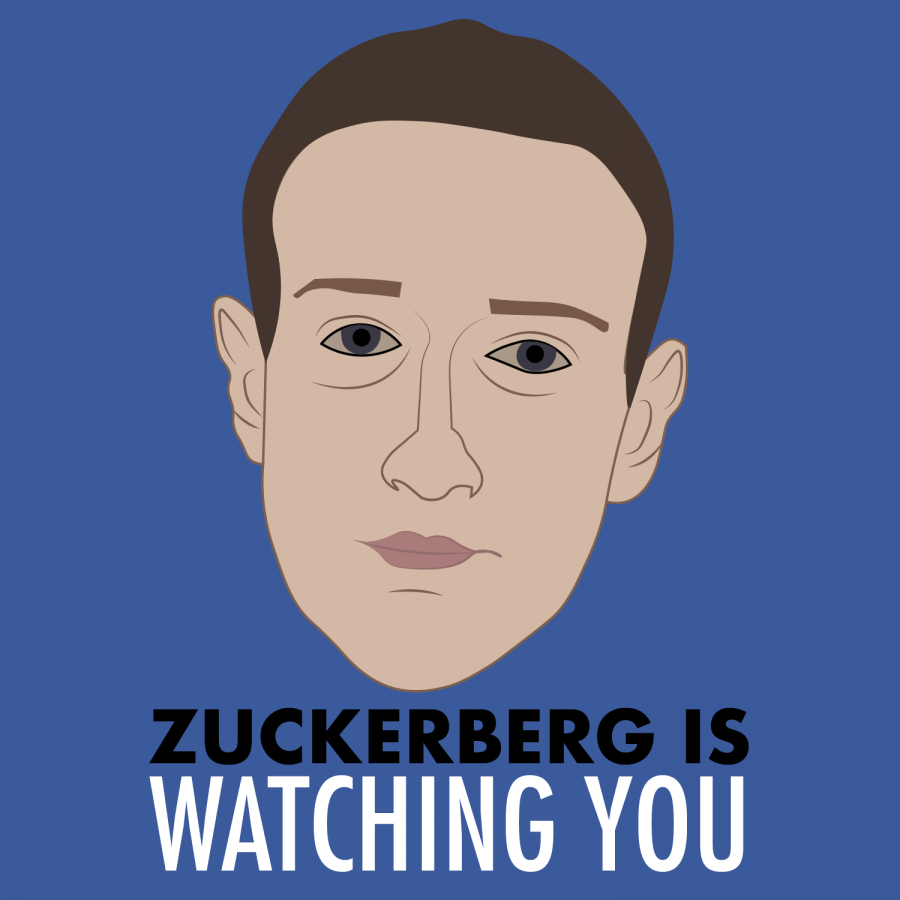Facebook does anything to profit
December 3, 2018
Facebook is a danger to society. This is not a particularly hot take, but it is one that has been supported by recent developments and historical trends.
Under the guise of Thanksgiving, Facebook admitted to the contents of an investigative New York Times piece that suspected systemic misconduct on Facebook’s part in dealing with Russian electioneering, tribalistic divisiveness and anti-Semitic damage control.
This is the most recent case in the company’s troubled history with user privacy, following founder Mark Zuckerberg’s attempt at a human-like Congressional testimony earlier this year. Itself yet another apology for Facebook’s systematic exploitation and commodification of user information, that hearing is simply one more data point in a well-established pattern: Facebook is incapable of self-regulation.
The company’s knowledge of and inaction regarding Russian interference illustrates its prioritization of profit and self-preservation over the public good and American national security.
Instead of taking comprehensive action to alert the proper authorities and make a public statement, Facebook kept the information secret for as long as possible. It censored an April 2017 report detailing Russia’s interference half a year before the first press bombshell.
Get The Daily Illini in your inbox!
The tech company hired right-wing opposition research firms to discredit critics and spread disinformation regarding such events, even tapping into growing anti-Semitism by implicating longtime scapegoat George Soros as part of this campaign.
Facebook’s official PR-vetted responses to privacy concerns attempt to divert such debate toward that of individual responsibility, but this blame-shifting is intended to cover up the site’s deliberately manipulative and addictive nature.
Sandy Parakilas, who directed company-wide privacy reform ahead of its initial public offering, compared the experience of quitting Facebook to that of cigarettes. “There was definitely an awareness of the fact that the product was habit-forming and addictive,” Parakilas said.
As he described internal efforts as prioritizing “data collection from its users over protecting them from abuse,” Parakilas joined a growing coalition of privacy experts and industry analysts calling for significant regulation of the social media giant.
“Facebook needs to be regulated more tightly or broken up so that no single entity controls all of its data,” he said. “The company won’t protect us by itself, and nothing less than our democracy is at stake.”
This is what’s at the heart of my problem with Facebook: Its inherent business model requires bad faith actions to maintain viability.
The only way for it to turn profit is dehumanizing and monetizing our lives, meaning all of its dividing and schismatic effects on modern society are a feature, not a bug.
It makes its biggest bucks when its users are subconsciously herded into echo chambers to be fed propaganda and manipulated each step of the way using targeted ads and algorithms.
From its role in the spread of hate crimes targeting Rohingya refugees to incentivizing partisanship and incivility in a recent online debate, Facebook’s failure to self-regulate has had disastrous consequences for individual victims and for society as a whole.
For a company whose mission statement is to “bring the world closer together,” Facebook seems to be splitting communities apart with each new post. At 2.2 billion users and over 600 million groups, Facebook has grown far beyond what any single company can effectively manage while still benefiting our society as a whole.
Specifically Facebook has a unique burden due to its outsized market dominance and influence; 4 in 10 Americans get their news from the site.
Facebook’s interests align with those of society only when it’s profitable to do so. As long as advertising provides a source of revenue, that intersection is unlikely at best. Any serious attempt to reform or mitigate the platform’s societal impact will have to focus on this fundamental flaw.
Apology after apology, Facebook has failed to deliver on promises of reform, continuing to foster social divisiveness and instability. The time is over for apologies — Facebook needs to be seriously regulated or split up if we want to have any hope for the future of this country’s political discourse.
Anthony is a freshman in LAS.







